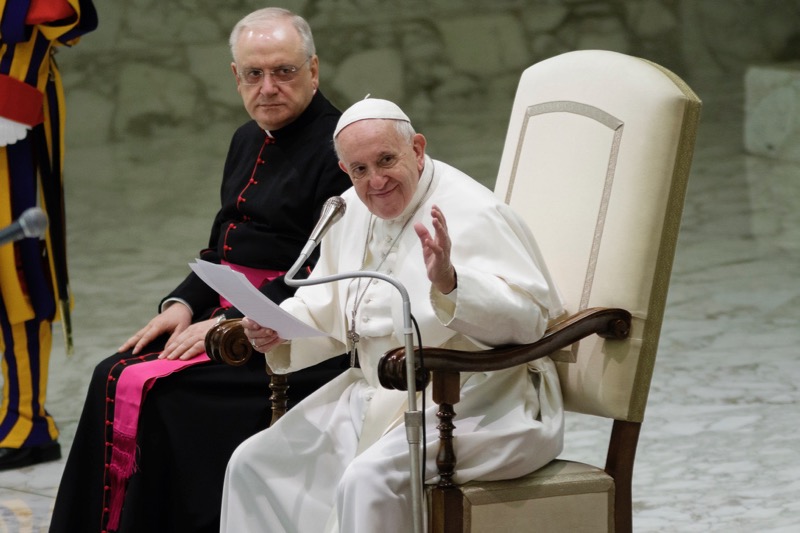People need to rediscover the art of storytelling and guard against the rise of false media narratives, Pope Francis has said.
“In an age when falsification is increasingly sophisticated, reaching exponential levels (as in deepfake), we need wisdom to be able to welcome and create beautiful, true and good stories,” he said in a message for World Communications Day 2020.
“We need courage to reject false and evil stories. We need patience and discernment to rediscover stories that help us not to lose the thread amid today’s many troubles”.
Francis released his message on the feast day of St Francis de Sales, the patron saint of journalists, and underlined the importance of stories in providing a moral compass. There is a need, he stressed, for a narrative which shows that “we are part of a living and interconnected tapestry”, along with stories which reveal the “untold heroism” of ordinary life.
The 83-year-old Pope has repeatedly spoken against the phenomenon of fake news, once telling the Belgian Catholic weekly, Tertio, that spreading disinformation is “probably the greatest damage that the media can do.”
At that time he offered a striking diagnosis, suggesting that consuming fake news was similar to coprophilia - an abnormal interest in faeces.
In his message released on 24 January the Pope made his first mention of deepfake, a phenomenon where by video and audio is subtly, but artificially, altered.
“Amid the cacophony of voices and messages that surround us, we need a human story that can speak of ourselves and of the beauty all around us,” the Pope explained.
“Human beings are storytellers. From childhood we hunger for stories just as we hunger for food. Stories influence our lives, whether in the form of fairy tales, novels, films, songs, news, even if we do not always realize it. Often we decide what is right or wrong based on characters and stories we have made our own.”
But Francis said that too many stories were being used “for purposes of exploitation” or “to lull us, convincing us that to be happy we continually need to gain, possess and consume.” He added: “we may not even realize how greedy we have become for chatter and gossip, or how much violence and falsehood we are consuming.”
As an antidote, the Pope recommended familiarity with the scripture stories and for believers to get into the habit of telling God “our story” in prayer.
“Jesus spoke of God not with abstract concepts, but with parables, brief stories taken from everyday life,” Francis explains. “At this point life becomes story and then, for the listener, story becomes life: the story becomes part of the life of those who listen to it, and it changes them.”
World Communications Day will be marked on 24 May 2020, and the Pope’s full message can be read here.



 Loading ...
Loading ...